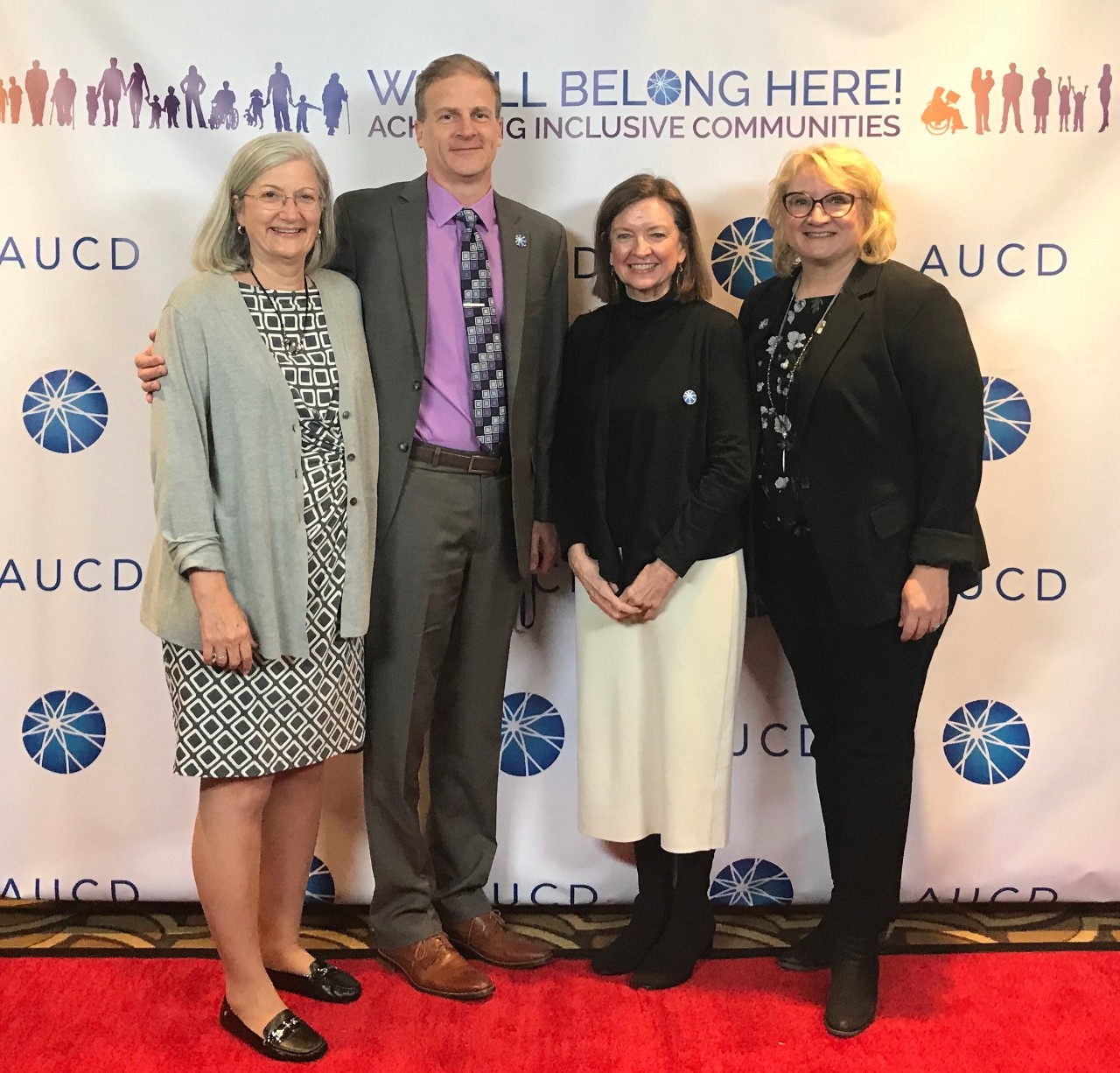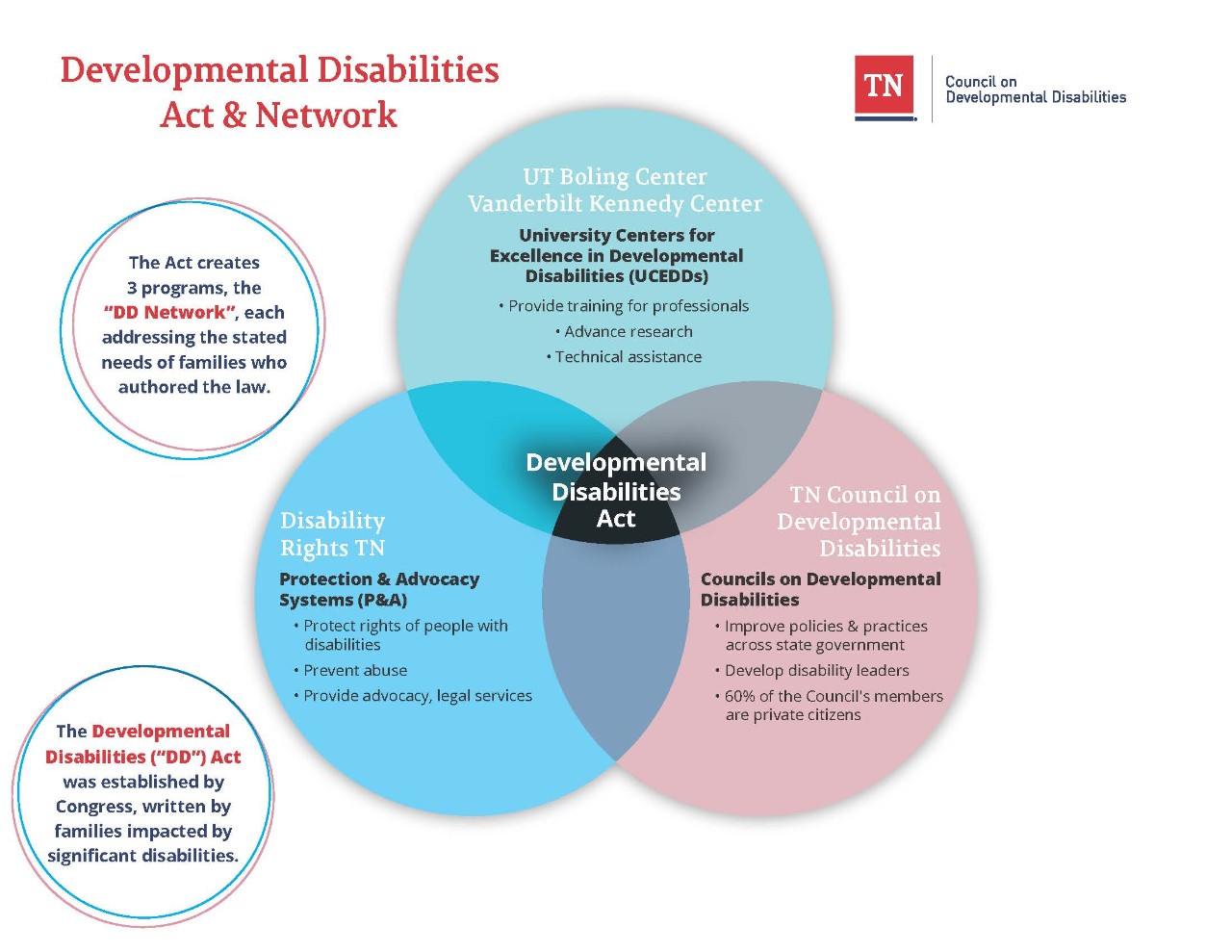Reflecting on the Great Wisdom of Families: Why collaboration across Tennessee’s Developmental Disabilities Network matters
by Lauren Pearcy, Public Policy Director, Council on Developmental Disabilities
More than 50 years ago, people with developmental disabilities and their families helped Congress envision, author and enact the legislation we now know as the Developmental Disabilities Act (DD Act) . Today, this law guides our work at the TN Council on Developmental Disabilities by setting our principles and articulating the fundamental belief that “disability is a natural part of the human experience that does not diminish the right of individuals with developmental disabilities to live independently, to exert control and choice over their own lives, and to fully participate in and contribute to their communities through full integration and inclusion in the economic, political, social, cultural, and educational mainstream of United States society.” That quote serves as the opening paragraph of the DD Act, which explains why the Council’s Executive Director, Wanda Willis, often calls it “the most beautiful piece of federal legislation you will ever read”. The values set forth in the DD Act have long served as a guidepost to the national disability landscape, reminding us that everything we do should reflect the principles of self-determination, independence, productivity, integration and inclusion in all facets of community life for individuals with developmental disabilities.
Beyond the philosophical legacy, the DD Act’s authors envisioned and established a trio of programs that could help put the Act’s values into practice. Specifically, these families and advocates saw the need for research and training; for protection of rights; and for collaboration of stakeholders including people with disabilities, their families and policymakers around the same table. To this end, the DD Act conceptualized three distinct entities that would work together as a network: University Centers for Excellence in Developmental Disabilities (UCEDDs); Protection & Advocacy Systems (P&As) and State Councils on Developmental Disabilities (Councils), respectively. In Tennessee, the DD Network’s programs are:
- The Tennessee Council on Developmental Disabilities
- Two UCEDDs: Vanderbilt Kennedy Center for Excellence in Developmental Disabilities, University of Tennessee Boling Center for Developmental Disabilities
- P&A: Disability Rights Tennessee
Tennessee stands out as a model for how the three programs can operate as a network that draw on each other’s unique expertise, as the DD Act’s authors envisioned. In the past year, for instance, Tennessee’s DD Network came together, alongside other partners, to research and disseminate information about Supported Decision-Making - an emerging national best practice about protecting and empowering the decision-making rights of people with disabilities. Tennessee’s work on this topic illustrates how the programs collectively achieve more, collaborating regularly but also delegating certain tasks to fit each other’s unique expertise. In Tennessee’s Supported Decision-Making initiative, the Vanderbilt Kennedy Center helped initially identify the emerging best practice and convened Tennessee’s Supported Decision-Making workgroup comprised of DD Network partners and other key stakeholders; Disability Rights TN contributed legal expertise that has been critical to understanding and explaining the topic; and the Council has been able to design, sponsor and lead events that reach diverse audiences with resources and information.
The impact: in just over one year, we reached over 2,500 Tennesseans of all types of backgrounds (individuals with disabilities; families; judges, lawyers and legislators; medical professionals; professors and educators; state agency personnel; etc.). Working as a network expanded each organization’s relatively small capacity, rounded-out our understanding of a complex issue, and ultimately strengthened the impact we were able to have for Tennesseans with disabilities.
Other ongoing examples of Tennessee’s DD Network joint projects benefiting Tennesseans include:
- Promoting employment for Tennesseans with disabilities: shared leadership on statewide employment initiatives such as the Employment Roundtable convened by the Council, TennesseeWorks coordinated by Vanderbilt Kennedy Center, and the Employment First Task Force hosted by Disability Rights Tennessee;
- Partners in Policymaking™ Leadership Institute: led by the Council and evaluated by the UT Boling Center, this program is a free leadership and advocacy training program for adults with disabilities and family members of persons with disabilities; and
- Tennessee Disability Pathfinder, funded by the Council and operated by Vanderbilt Kennedy Center, “Pathfinder” is the state’s comprehensive information and referral source for disability services.
In November, Council Executive Director Wanda Willis was honored with a Lifetime Achievement Award in Washington D.C. during the annual conference of the Association of University Centers on Excellence in Disabilities. The award is given annually to honor an outstanding leader for a lifetime of dedication to people with intellectual and developmental disabilities and their families. It is a testament to the strength of our Tennessee DD Network that a leader from a Council received this prestigious national award, given by the association for UCEDDs. In recognition of this, Wanda invited the leaders of all Tennessee’s DD Network programs to join her in accepting the award.
